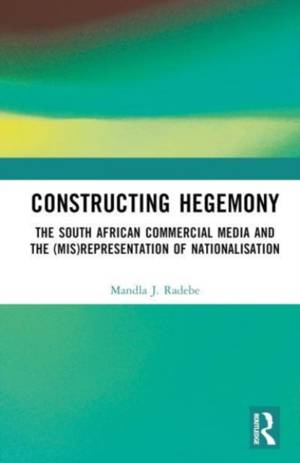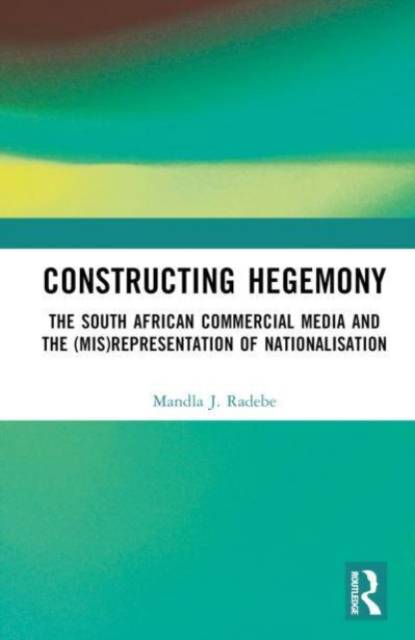
- Retrait gratuit dans votre magasin Club
- 7.000.000 titres dans notre catalogue
- Payer en toute sécurité
- Toujours un magasin près de chez vous
- Retrait gratuit dans votre magasin Club
- 7.000.000 titres dans notre catalogue
- Payer en toute sécurité
- Toujours un magasin près de chez vous
Constructing Hegemony
The South African Commercial Media and the (Mis)Representation of Nationalisation
Mandla J RadebeDescription
Post-apartheid South Africa continues to face challenges in its attempts at economic transformation from decades of apartheid and colonisation. This need for revolution has resulted in various policy initiatives, including the ongoing demands for the nationalisation of the economy. The commercial media has a central role in shaping policy debates. But this media is an ideological tool and an economic resource since it is owned and controlled by people with political and economic interests and, therefore, tends to support and promote their interests.
This book provides a Marxist critique of the representation of the nationalisation of the mines debate by the South African commercial media. Radebe examines corporate control of the media to articulate the interrelations between the State, Capital and the Media and how commercial media represents, shapes and influences public policy. He concludes that beyond factors such as ownership, commercialisation and the influence of advertising on news content, the global capitalist hegemony has a more powerful effect on the commercial media in South Africa than previously thought.
Print edition not for sale in Sub Saharan Africa.
Spécifications
Parties prenantes
- Auteur(s) :
- Editeur:
Contenu
- Nombre de pages :
- 286
- Langue:
- Anglais
Caractéristiques
- EAN:
- 9781032630915
- Date de parution :
- 01-12-23
- Format:
- Livre relié
- Format numérique:
- Genaaid
- Dimensions :
- 152 mm x 229 mm
- Poids :
- 571 g







